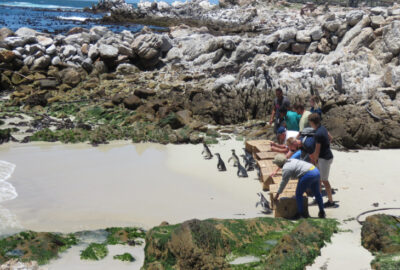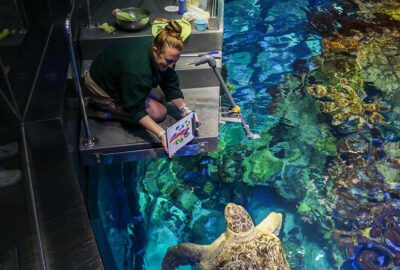Caring for Our Newest African Penguin Chick
A Q&A with Senior Penguin Trainer Amanda Barr
By New England Aquarium on Tuesday, April 25, 2023


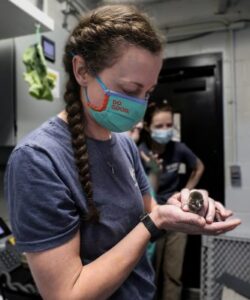
By John Shakespear
April 25 is World Penguin Day, and there’s plenty to celebrate this year at the New England Aquarium. On March 23, we welcomed a new African penguin chick to our penguin colony for the first time in four years. The newest member of our colony is growing quickly and thriving, thanks to the care of its parents, Malgas II and Demersus III, and the around-the-clock attention of the Aquarium’s Animal Care staff. Hear from Senior Penguin Trainer Amanda Barr (pictured with the chick) about what goes into breeding new members of this endangered species and helping them prepare to join the penguin exhibit.
How did the new chick’s parents meet?
They met here at the Aquarium! Penguins are serially monogamous—some stay together for one season, while one pair in our colony has been together for 23 years. Malgas II and Demersus III had already raised one chick together before, and Malgas II had also raised two others with a previous mate.
What goes into selecting penguins for the breeding process?
To help protect and restore the endangered African penguin population, the Aquarium participates in the Species Survival Plan (SSP) for African penguins along with several other institutions accredited by the Association of Zoos and Aquariums (AZA). The goal of the SSP’s breeding program is to produce a genetically diverse and sustainable population. Each penguin is ranked on a scale of 1 to 5 according to their genetic makeup, and at SSP meetings every three years, we look at which pairs who are already together have the highest combined score. This breeding season—the first full season at the Aquarium since 2019—there were three pairs chosen, and one chick hatched successfully.
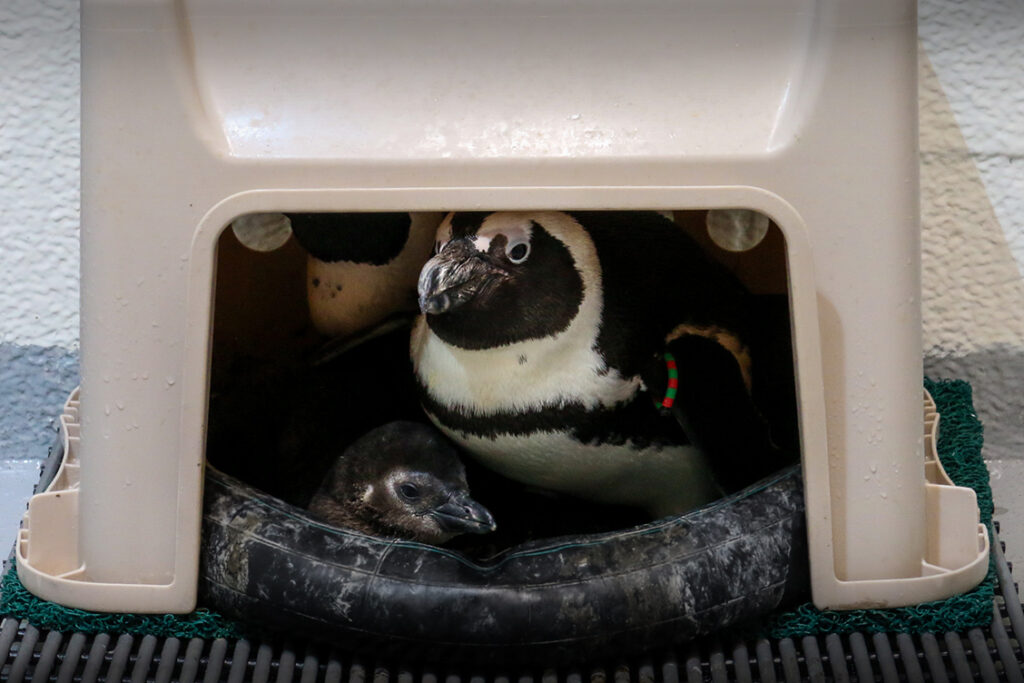
What is the nesting environment like?
African penguins are burrow nesters, so we provided each pair with a nest that had a mat and a kitty litter top, which created a cave-like space. Each of the three pairs claimed one of the nests, and the penguin couples stayed together 24 hours a day. At first, we kept the pairs separated from one another, but once they got used to the nesting environment, we brought them closer together so all six penguins could socialize.
How do you monitor the eggs during the incubation process?
African penguins typically incubate their eggs for 38–42 days, sitting on the eggs to keep them warm. We monitor the eggs constantly during this process, gathering data on factors like nest temperature and humidity that helps inform breeding best practices around the world. Every two weeks, we “candle” each egg, shining a concentrated beam of light through the shell to determine if it is fertile and developing normally.
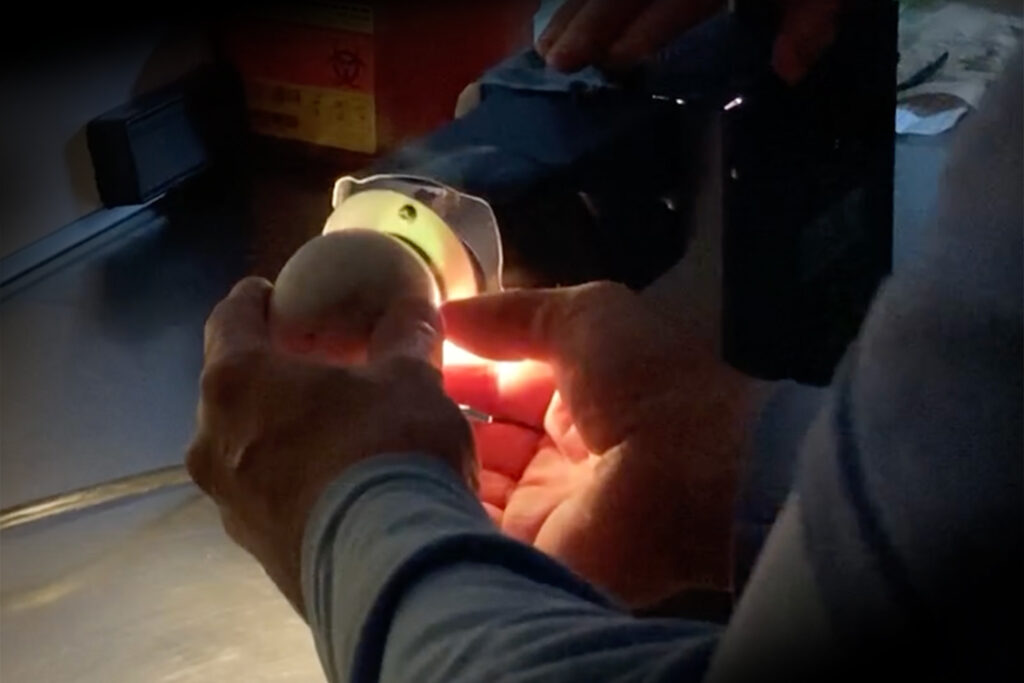
How are you caring for the new chick?
African penguins are born with downy feathers, but around three months old, they get their first waterproof feathers, enabling them to venture further from the nest and learn to swim safely. In the early stages, the parents provide most of the care, just as they would in the wild. African penguins have an egalitarian approach to parenting, and the mother and father take turns feeding the chick from their own beaks and caring for it. We monitor the penguin family 24/7, and as the chick grows, we’ll start teaching it to be hand-fed by our Animal Care team to get it ready to join the rest of the colony on the exhibit!
When will the chick join the exhibit?
It depends on how long it takes the new chick to get comfortable swimming and climbing and build relationships with its fellow penguins and trainers, but we’re currently expecting a debut on the main exhibit early this summer. At that point, the Animal Care team will do a blood test to determine the chick’s sex and name it, and the chick will join the exhibit full-time, identifiable by its gray feathers and ID bracelet. It will be surrounded by relatives, including its great-grandmother Deco, who’s the oldest penguin at the Aquarium at 41 years old.
What’s the most exciting thing about welcoming this new chick?
Every new African penguin chick is a huge win for this endangered population. Due to overfishing, oil spills, and climate change, the global population of African penguins has declined 97% in the last century. Without our close attention and efforts, they could go extinct by 2035. So we’re overjoyed to be welcoming a new chick to the colony! Also, every successful breeding teaches us a little more about the factors that can help us support future births, from nest temperature to genetics, and we get to share that information and play a part in the AZA’s efforts to save African penguins around the world.

